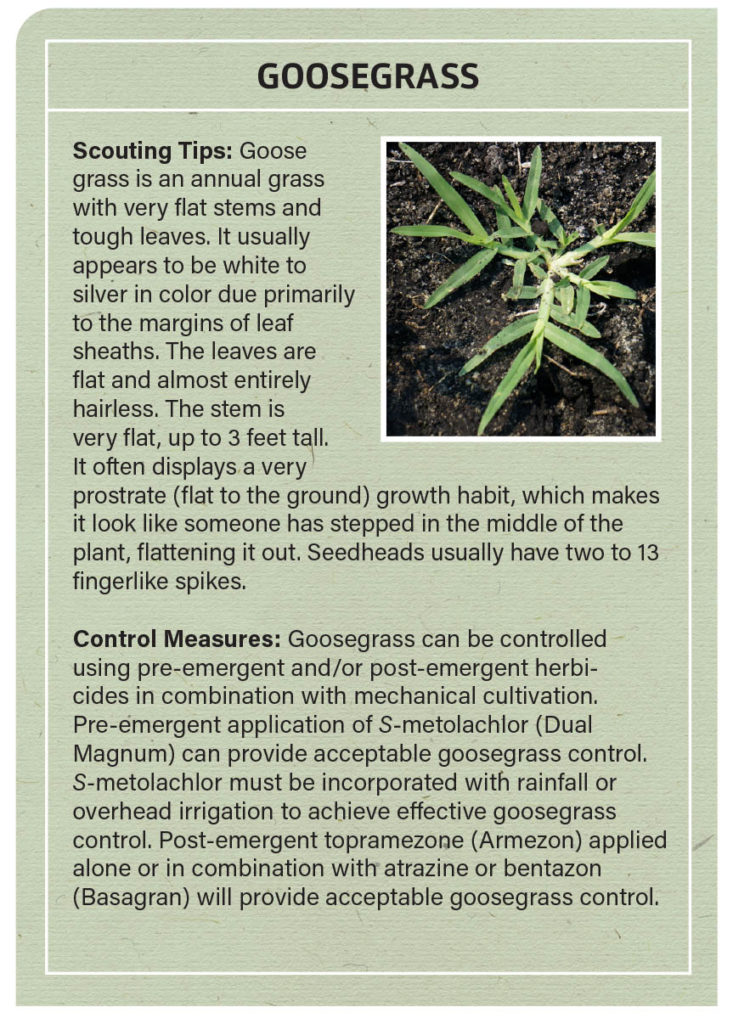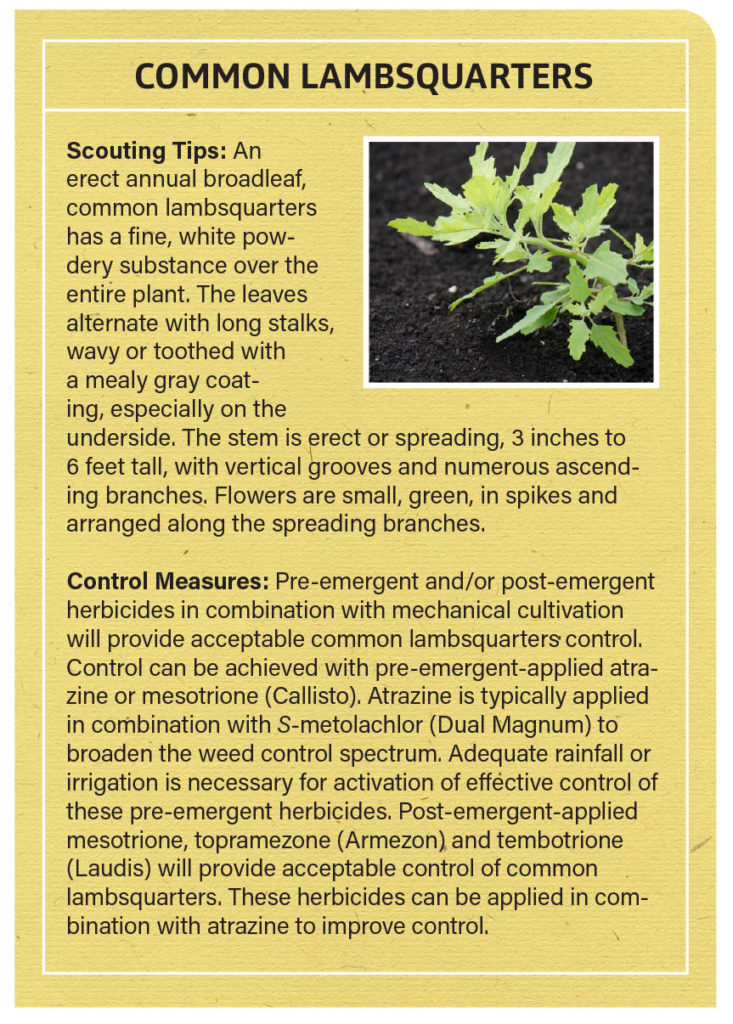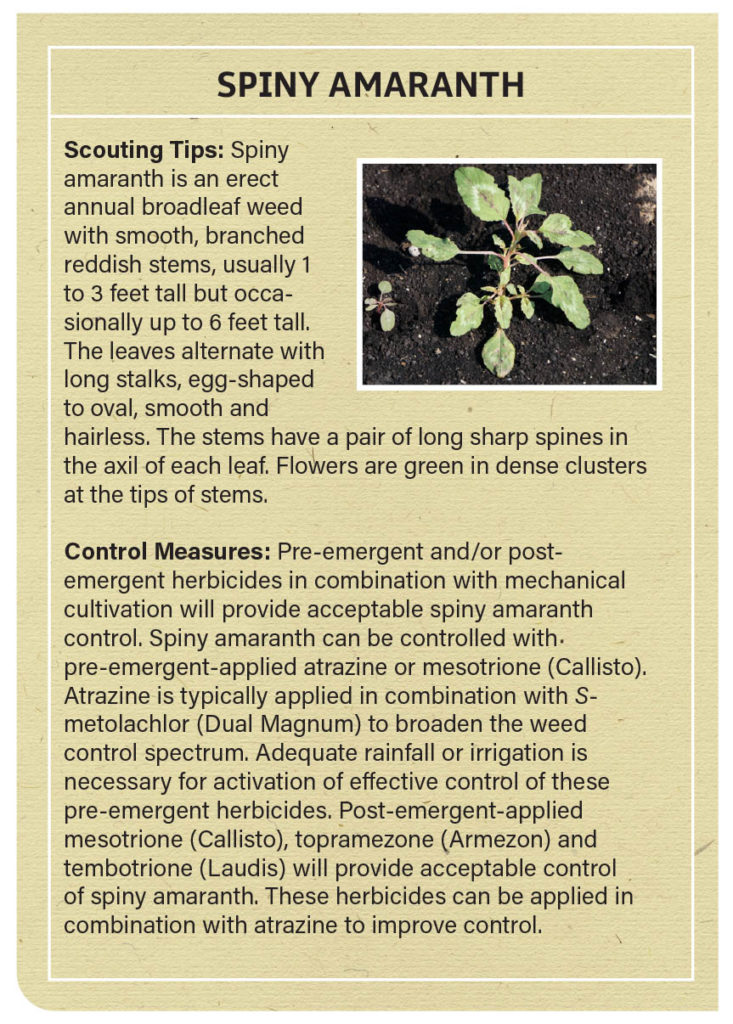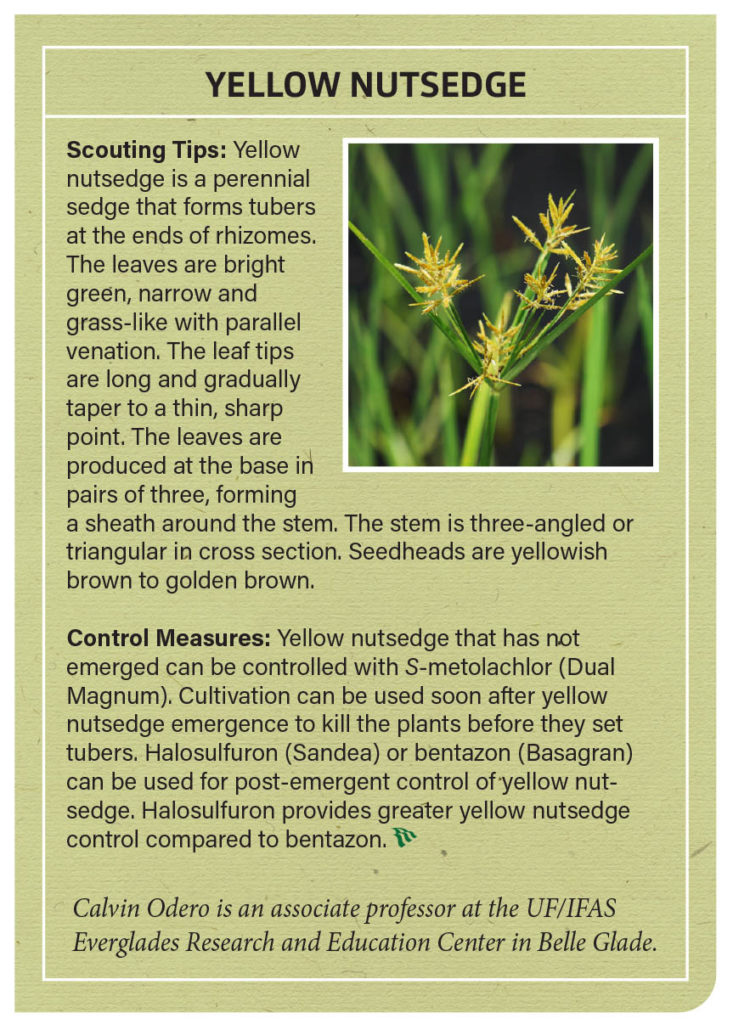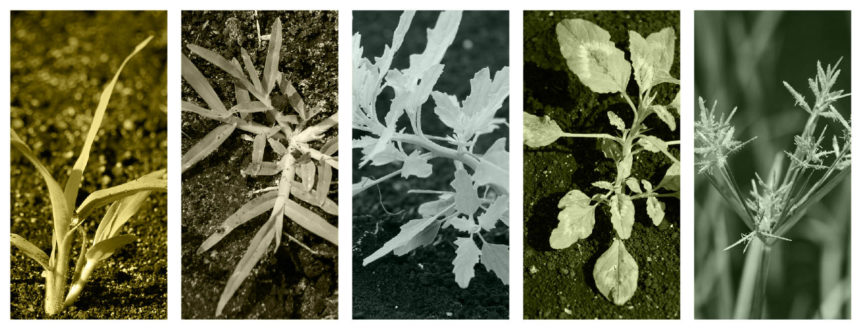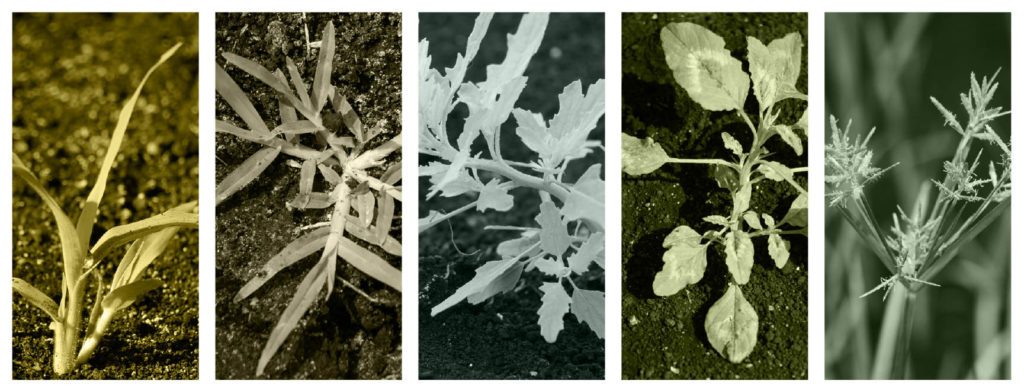
By Calvin Odero
Weed management is essential in sweet corn production to maximize yield and quality. Effective weed management practices minimize competition for nutrients, water and sunlight and help prevent diseases and pests that often thrive in weed-infested fields.
Sweet corn weed management programs in South Florida are mainly comprised of chemical weed control, which includes pre-emergent herbicides applied after planting before crop and weed emergence, and post-emergent herbicides applied after weed emergence. Mechanical cultivation between row middles and hilling are common practices used to supplement chemical control. Hilling is also important in augmenting sweet corn anchorage to minimize lodging.
Although cultivation can reduce the number of herbicide applications in sweet corn, its use as a standalone measure will not provide sufficient weed control to completely replace chemical control. The timing of weed control measures in sweet corn will vary depending on the prevailing conditions and weed pressure. Integrated weed management, which combines multiple strategies, is often the most effective approach to control weeds in sweet corn while minimizing their impact on the crop.
Always follow the recommendations on herbicide labels. Consider consulting with University of Florida Institute of Food and Agricultural Sciences (UF/IFAS) Extension personnel or other experts for advice tailored to your specific circumstances to ensure efficacy of your weed management program.
Following are the most problematic and prevalent weed species associated with sweet corn production in South Florida.
